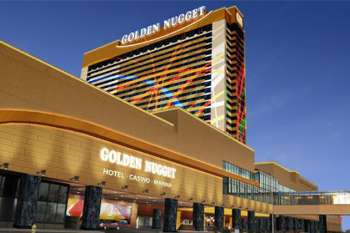Golden Nugget Atlantic City Wins $1.5 Million Baccarat Case
 The Golden Nugget in Atlantic City, New Jersey has won a favorable ruling in a $1.5 million baccarat scandal some two years after the case was first heard.
The Golden Nugget in Atlantic City, New Jersey has won a favorable ruling in a $1.5 million baccarat scandal some two years after the case was first heard.
On April 30, 2012, a group of 14 gamblers were playing mini-baccarat at the Golden Nugget in Atlantic City when they realized something was not quite right with the deck of cards being used for the popular game. The gamblers noticed a specific pattern in the cards being dealt, promptly attempted to take advantage of the situation and increased their bets from $10 per hand up to $5,000 per hand at one stage.
By the time their gambling spree ended, the 14 gamblers had taken the house for $1,536,700 (over 41 consecutive hands). When the players began winning and winning heavily the Golden Nugget’s surveillance supervisors stepped in to see if they could discover any cheating occurring.
The casino stated during the case that: “From the beginning to the end of play, however, the plaintiff could not identify any particular act of those players that actually constituted swindling and cheating.”
Nine of the group managed to cash out a combined $558,900 because the casino, at the time, did not realize what had actually happened until an in-depth investigation took place. The casino refused to redeem an additional $977,800 in chips, however.
Upon completion of the internal investigation, the Golden Nugget discovered that the playing cards supplied by Kansas City playing card manufacturer Gemaco had been supplied unshuffled despite a guarantee from Gemaco that the deck would be completely random when first opened. The players then took advantage of being able to accurately narrow down the next cards, much like when a card counter plays blackjack.
Although the Golden Nugget claimed the game was illegal because the cards were not pre-shuffled, a preliminary court hearing in August 2012 went in favour of the gamblers and the casino was ordered to pay the remainder of the outstanding winnings. The casino’s owner, Tilman Fertitta, offered to settle the outstanding amount as long as the gamblers dropped their other claims against the casino, which included racial discrimination, illegal detention and racketeering. The gamblers refused the offer as they wanted to seek damages and costs in addition to their winnings.
On Friday 13 June, 2014, Judge James Isman ruled the game in question was in fact illegal under state casino rules due to the unshuffled cards. As a result, the casino was instructed not to settle the outstanding $977,800 and to recover the $558,900 that it had originally paid out on the night of the incident.
A spokesperson for the Golden Nugget said in a statement: “We were 100 per cent vindicated by Judge Isman’s ruling. Remarkably, and despite this generous proposal, the gamblers and their lawyers steadfastly refused, and selfishly wanted more damages than just the gambling winnings. Instead of walking away with over a $1.5m win, the gamblers must now return all of their gambling chips to the Golden Nugget. There are obvious lessons to be learned by all sides as a result of this incident. Unfortunately for the gamblers, it cost them over $1.5m.”
 It will be interesting to see how the ruling in the Golden Nugget case affects the ongoing saga surrounding Phil Ivey and Borgata. You may recall that New Jersey’s Borgata Hotel Casino & Spa filed a suit against Ivey and his female companion after Ivey won $9.626 million playing high-stakes baccarat during four separate visits to the Borgata in 2012.
It will be interesting to see how the ruling in the Golden Nugget case affects the ongoing saga surrounding Phil Ivey and Borgata. You may recall that New Jersey’s Borgata Hotel Casino & Spa filed a suit against Ivey and his female companion after Ivey won $9.626 million playing high-stakes baccarat during four separate visits to the Borgata in 2012.
Ivey is believed to have used “edge sorting” to stack the odds in his favour, the same method that he admitted to using when in the lavish London casino Crockfords. Ivey is currently suing Crockfords casino for $12.1 million after it withheld that sum from Ivey in August 2013.



















COMMENTS